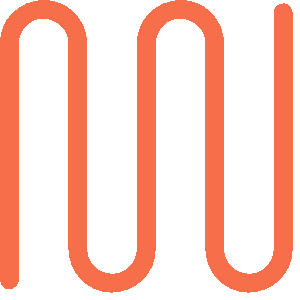Google Ads has become the lifeblood of digital marketing, dominating the landscape with its pay-per-click (PPC) advertising model. In an age where visibility is key, Google Ads gives businesses of all sizes a fighting chance to be seen and heard. But how much does it really cost to run a Google Ads campaign? The answer, like most things in life, is complicated—it can range from pocket change to a pretty penny, depending on how you play your cards.
Before diving into the numbers, let’s talk about why Google Ads is so popular. With over 8.5 billion searches happening daily, Google Ads has secured its place as a go-to advertising platform. It’s responsible for nearly 80% of Google’s total revenue, proving just how indispensable this tool is for both advertisers and Google itself.
Whether you’re a mom-and-pop shop or a global powerhouse, Google Ads offers a way to reach your audience precisely when they’re searching for what you offer. But all this power comes with a price—literally.
How Expensive are Google Ads?
Google Ads can be expensive, but the cost varies dramatically depending on multiple factors. On average, businesses spend anywhere from $1 to $2 per click in Google Ads on the Search Network. But don’t be fooled by those modest numbers; the average cost per click (CPC) can soar to $50 or more in highly competitive industries like law, insurance, or finance. So, while the average CPC across all industries might hover around $2.69, your specific costs could be much higher.
But wait, there’s more. Google Ads isn’t just about CPC—it’s about how much you’re willing to invest to get those clicks. The average small-to-medium business can expect to spend anywhere between $1,000 and $10,000 per month on Google Ads. That’s a pretty penny, and it only gets steeper as you factor in the competitiveness of your industry, your target keywords, and how well your ads perform.
So, yes, Google Ads can be expensive. But the question you should be asking isn’t just "How much will it cost?"—it’s "What will I get out of it?" The real kicker is that your final costs are determined by several factors that either work in your favor or against you.
Which Factors Affect the Cost of Google Ads?
The cost of your Google Ads campaign doesn’t just depend on your budget—it’s influenced by a cocktail of elements that Google uses to determine how much you pay for each click. Here are the key players:
Quality Score
Think of your Quality Score as Google’s report card on how well your ads match up with user intent. It’s a grade between 1 and 10 that reflects the relevance and quality of your ads and landing pages. A high Quality Score can slash your CPC by making your ads more competitive in the auction, allowing you to spend less for better results. On the flip side, a low Quality Score can send your costs skyrocketing, as you’ll need to bid higher to secure those valuable placements.
Industry
Some industries will face steeper competition when it comes to Google Ads. If you’re in a niche like legal services, insurance, or healthcare, brace yourself for higher costs. These industries are hyper-competitive, meaning more businesses are vying for the same keywords, which drives up the cost. In contrast, industries with less competition might enjoy lower CPCs, making Google Ads a more affordable option.
Keywords
Keywords are the backbone of any Google Ads campaign, and they can make or break your budget. The cost to target a keyword isn’t just about how popular it is—it’s also heavily influenced by the intent behind it and the level of competition.
Let’s start with intent. There are four main types of search intent: informational, navigational, commercial investigation, and transactional. Each type reflects where a user is in their buying journey, which directly impacts the cost of the associated keywords.
- Informational intent is when someone is just gathering information. For instance, a search like “How do I get insurance for my car?” shows that the user is in the early stages of research, meaning they're not yet ready to make a purchase.
- On the other hand, commercial investigation and transactional searches suggest that a user is much closer to making a purchase. A search like “best car insurance companies” shows a higher intent to buy, making these keywords more valuable—and therefore more expensive.
- Additionally, navigational keywords are used when someone is looking to find a specific website or page, such as searching for a brand name or a particular product directly (e.g. “GEICO official website”).
Ad Rank
Ad Rank is the final piece of the puzzle. This is Google’s way of determining where your ad will appear on the search results page. It’s calculated using your bid amount, your Quality Score, and the expected impact of your ad extensions and other ad formats. A higher Ad Rank means a better position, and often, a higher cost—though a stellar Quality Score can help offset these expenses.
Put Google Ads to Work for Your Organization Today
Ready to harness the power of Google Ads without emptying your wallet? The key is to be strategic: focus on improving your Quality Score, choose your keywords wisely, and understand the nuances of your industry. Want expert help? Let the Terra team take the reins. We’ll craft a custom strategy to maximize your ad spend and drive the results your business needs. Learn more about Terra’s paid search capabilities.
Related Insights
We’re looking forward to working with you, too.
Start conquering the digital terrain today.








